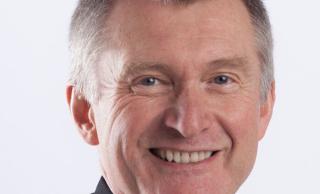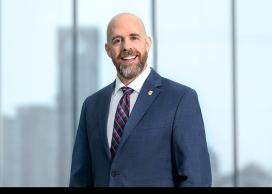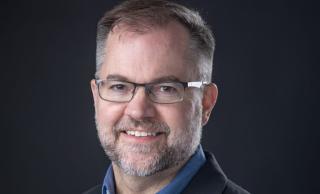Research in focus: Jim Christenson
Learn more about the work of our researchers at UBC
‘Research in focus’ is a new regular UBC Today feature about our talented researchers and their incredible work at UBC. Go on a short journey of exploration with our first researcher, Jim Christenson, who focuses on improving survival from sudden unexpected cardiac arrest.

September 28, 2020
Name:
Jim Christenson
Title:
Professor and Head
Department/Unit:
Faculty of Medicine/ Department of Emergency Medicine
Are you Faculty or Staff?
Faculty
Location:
Vancouver, but distributed in the Interior, Fraser and Vancouver Island
What year did you start working at UBC?
1980
Provide an overview of your research in 75 words or less:
Our research focuses on improving survival from sudden unexpected cardiac arrest. We have doubled survival by improving early quality CPR, defibrillation and advanced care. We are now transforming our thinking and approach to new innovative strategies: integrating community responders with 911, exploring sensor devices to detect cardiac arrest and to signal 911 when victims arrest alone, and learning how to better resuscitate brains injured from no circulation before restarting the heart.
What first motivated you (or motivates you) to conduct your research?
I see these 35,000 patients a year in Canada who die unexpectedly and only 10% will leave hospital alive. I know that if conditions had been right that they would still be alive. The focus to date has been with paramedics and first responder quality CPR and lay public CPR and defibrillation in public places. Unfortunately most arrests occur in the home setting and we need to find better strategies to save more lives.
What do you hope will change as a result of this research?
We want to change how communities respond to cardiac arrest by integrating equipped volunteer teams with the 911 response. They will respond and provide CPR and defibrillation prior to ambulance or first responder arrival. We hope to develop acceptable sensors that can inform 911 and get an ambulance enroute within minutes even if the patient is alone when their heart stops. We also hope to help more brains recover after the injury sustained during the period prior to restarting the heart.
Are there any research collaborators you’d like to acknowledge and why?
Of note, Dr. Brian Grunau is an emergency physician and resuscitation scientist who has published extensively and leads an important trial. Dr. Chris Fordyce is a cardiologist who is focused on linking data to uncover potential predictors of cardiac arrest, downstream health care utilization and long term survival. Prominent national collaborators in the Canadian Resuscitation Outcomes Consortium include Dr. Christian Vailancourt (Ottawa), Dr. Sheldon Cheskes (Toronto), Dr Steven Brooks (Kingston) and Dr. Katie Dainty (Toronto).
Describe any interesting research milestones you are approaching
We have reorganized our data collection process to be more efficient and can now provide better provincial reports including reporting on the outcomes in rural settings. We are expanding our research cluster to include basic science mechanisms of whole brain ischemia and potential drugs that can reduce the damage caused during the resuscitation process, thus resulting in more patients with full brain recovery. We are collaborating with biomedical engineers to develop effective peripheral sensor(s) to accurately detect cardiac arrest ultimately to eliminate the category of patients with unwitnessed arrests who currently have a survival rate close to zero.
‘Research in focus’ is a new regular UBC Today feature about our talented researchers and their incredible work at UBC. Go on a short journey of exploration with our first researcher, Jim Christenson, who focuses on improving survival from sudden unexpected cardiac arrest.
- Our people
- Research
- Research in focus






